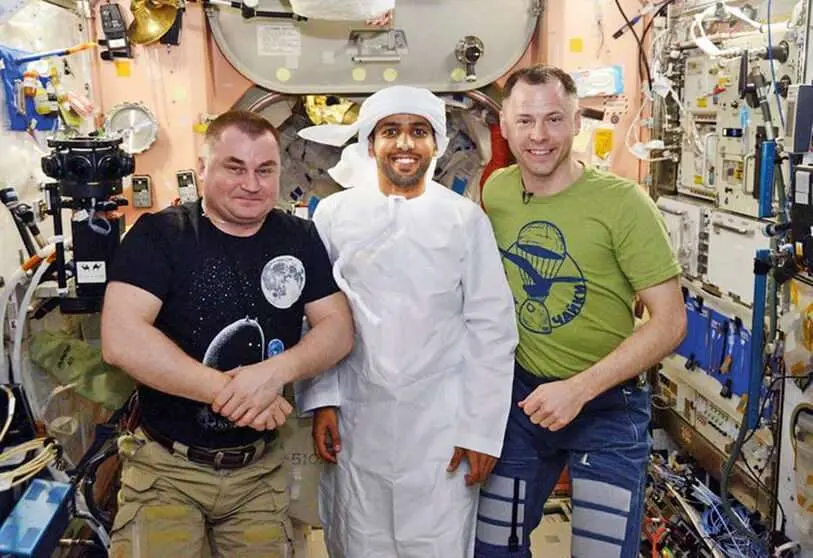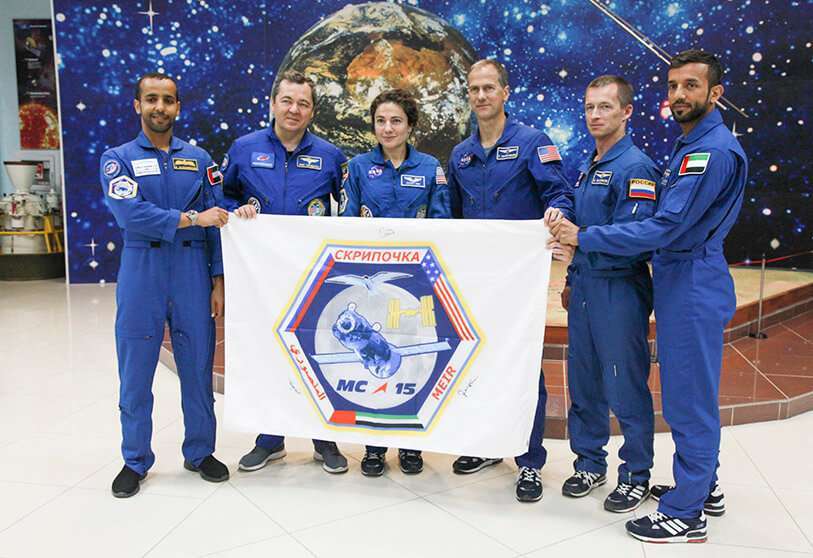Emirates joins the 'Artemis Accords' countries to enhance global space cooperation

Traveling into space is no longer a matter for the great powers like China, Russia and the United States. Now other countries with strong scientific and technological capabilities will also be able to explore outside the globe without political pressure.
The UAE Space Agency (UAESA) signed onto NASA’s Artemis Accords on Tuesday, an international treaty that aims to further consolidate the principles of peaceful collaboration and coexistence in space exploration, planetary science and space engineering, and to pave the way for lunar and Martian exploration.
"We have ourselves benefited from many fruitful partnerships as we have evolved our own space programme," Her Excellency Sarah Al Amiri, UAE Minister for Advanced Technology and Chair of the UAE Space Agency said.
Al-Amiri is also Chair of the UAE Space Agency and deeply committed to international cooperation in space exploration. Last day, while celebrating the news of the signing, she said that "as a result, we have also been able to make increasingly effective contributions to international efforts to push the boundaries in our shared human knowledge and understanding of our universe."
The Artemis Accords covers several high-level principles to strengthen collaboration and governance in the next era of space exploration. It reaffirms the principles in the Outer Space Treaty and promotes a positive commercial interpretation of activities on celestial bodies.
A number of important areas have been highlighted as novelties in the agreements: these include transparency, the provision of emergency assistance to astronauts in distress, respect for heritage and the public dissemination of scientific data for the benefit of all.
The UAE Space Program has evolved from the country being a buyer and operator of satellites to building its own space systems engineering capabilities, with collaborations including partnerships in South Korea, Japan, Russia, the US and European Union. The Emirates Mars Mission in particular is a truly international collaboration, involving US-based academic partners, US and European science contributors and a Japanese launch partner.
Transparency, public registration and deconflicting activities are all core to the Accords, which will also help to build future multilateral discussions at the United Nations Committee on the Peaceful Uses of Outer Space and other international forums.
"Everything we learn from our journeys to space helps us in our understanding of our fragile world and the planetary systems that sustain humanity. Our commitment to scientific research, planetary science and space systems engineering is rooted in our desire to nurture and build opportunities for our young people, to further our nation's development," Amiri stated.
The UAE Space Agency (UAESA) was launched in 2014 with a vision to establish The Emirates as a leader and key stakeholder in space and to inspire future generations of Emiratis to actively pursue career ambitions in this field.
Through preparing highly skilled professionals and enhancing research and development in the field, launching space programs and fostering strategic partnerships, UAESA also contributes to the national economy and aids sustainable development. As part of its overarching goal, the Agency seeks to facilitate an Arab exploration of outer space, build a space industry in the region and advance regional and national capabilities in this sector.
The American National Aeronautics and Space Administration (NASA) announced on Tuesday a pact with seven countries, which it has baptized as the Artemis Accords, which establishes a series of rules for exploring the Moon.
The 'Artemis Accords' have been signed by the United States, Australia, Canada, Italy, Japan, Luxembourg, the United Kingdom and the United States.
“These are principles that we have all agreed upon and that begin with the basic principle contained in the Outer Space Treaty that we are going to explore space peacefully, we believe that this is very important,” NASA Administrator Jim Bridenstine stressed at a telematics press conference. Furthermore, the NASA spokesman clarified that "the first step in a peaceful exploration of space is to make sure nations are transparent,” he added.
Another principle is “interoperability”, that is, “how we do things when we interact with each other as independent nations, but at the same time how we work together to do things that we could not do alone but together,” Bridenstine explained. In that sense, he specified that this point would contemplate situations in which countries provide help if the astronauts of another nation have a problem.
Another of the provisions, which Bridenstine considered one of the most important of the Artemis agreements, is the registration of space objects. “Of course, we think in terms of orbital positions or objects that go to specific orbits through space, but it is also important that we record what we are sending to the Moon and what is being sent to Mars,” he said.
In sum, with these agreements “we are joining with our partners to explore the Moon and establish vital principles that will create a safe, peaceful and prosperous future in space for all humanity to enjoy,” Bridenstine said.

Russia stands out among those absent from this pact, describing it as "too American-centric". In this connection, Bridenstine, who did not rule out the possibility of more countries joining the initiative, expressed his hope that Russia would join one day.
“I remain hopeful that Russia will join the Artemis agreements, and even if it does not join, that they will comply with the principles set out in them because what we are doing is making operational what is agreed in the Outer Space Treaties,” he said. In that sense, he recalled that next month will celebrate “twenty years of American astronauts and Russian cosmonauts living and working together in space”, something that he described as “an incredible milestone.”
NASA is leading the Artemis programme which aims to send the first woman and man to the lunar surface in 2024. The agency has explained that international partners will play a "key role" in achieving a sustainable and robust presence on the Earth's satellite by the end of this decade, while preparing a manned mission to Mars.








